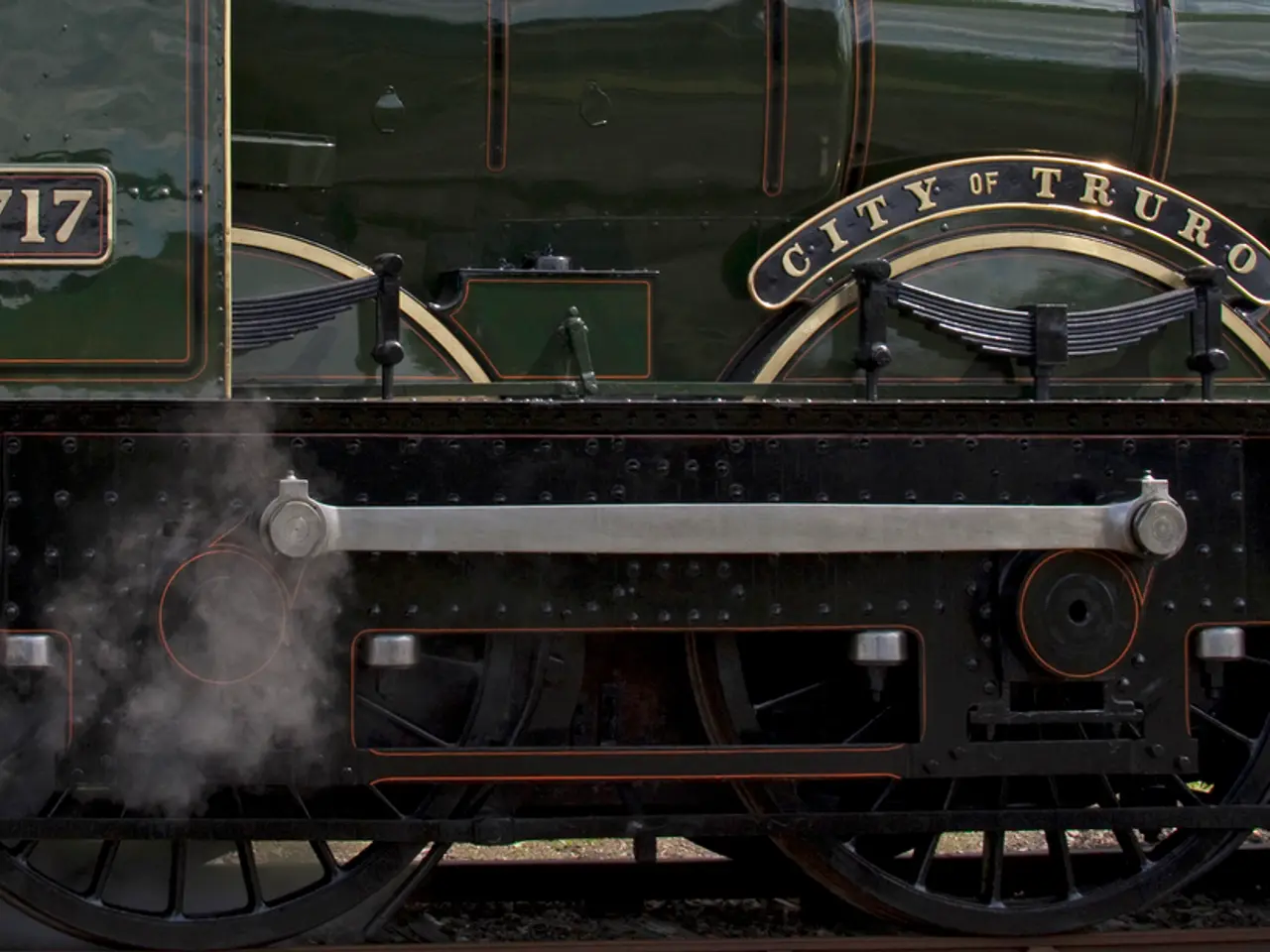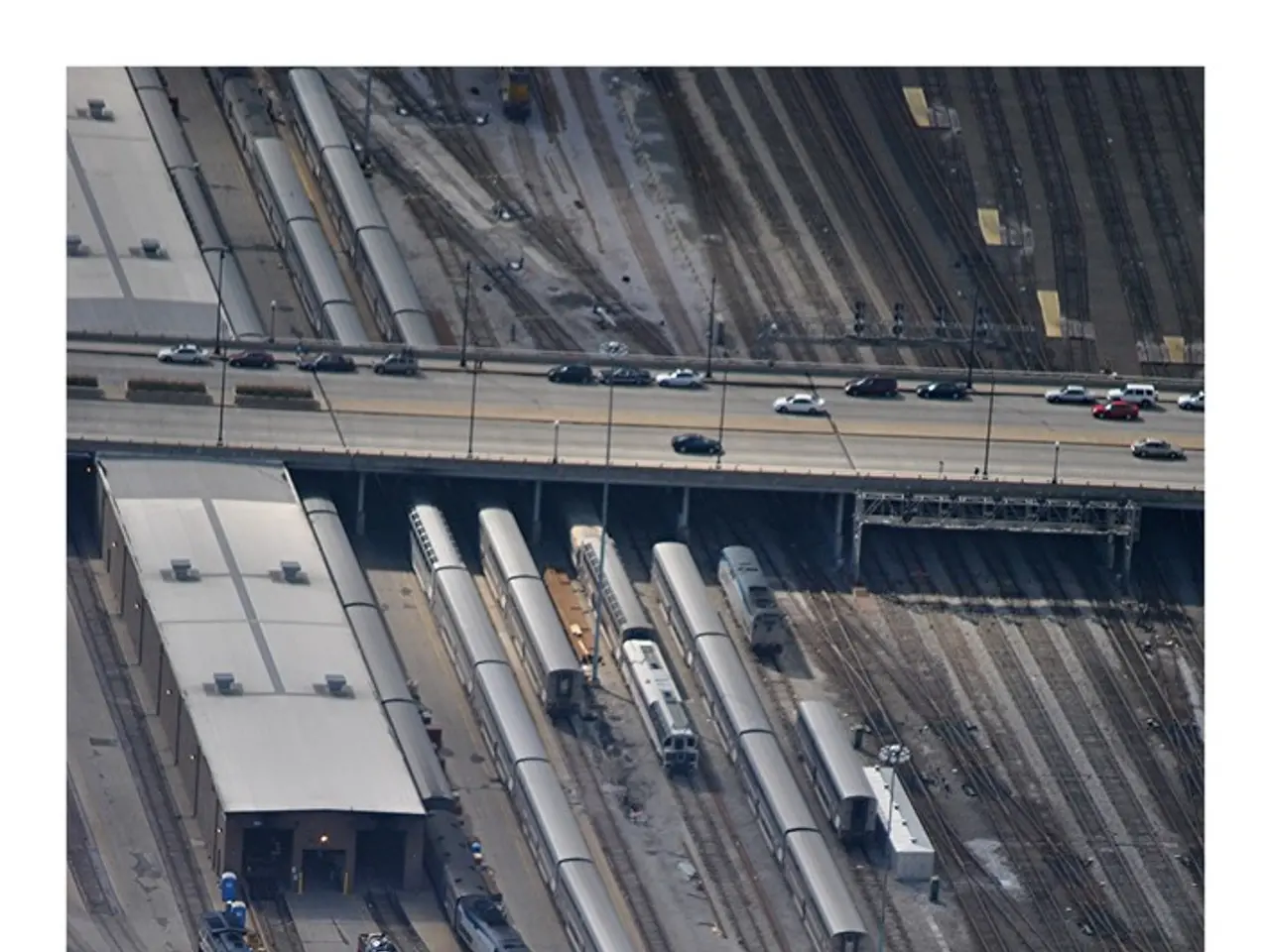Delay in Implementation of Swift Railway Service Between Brussels and Luxembourg Pushed Back to 2028
With a Potential Pushback to 2028, the Swift Trains Journey Between Brussels and Luxembourg Might Face Delays
Embark on a revitalized trip between two European capitals as a speedier train connection between Brussels and Luxembourg is on the horizon, but might not arrive until 2028! Originally aiming to slice the commute down to mere hours, the transport ministers of both nations unveiled the new timeline during a press conference on June 3rd in Kirchberg.
Taking a step back to January, the ministers—François Bausch (déi Gréng) and Georges Gilkinet (Ecolo)—had petitioned the European Commission for funds to upgrade the rail line. Bausch expressed his desire to cut the travel time between these European capitals to a swift two hours.
Reducing the journey time by a mere 30 minutes between our capitals would already be a fantastic leap forward. The ministers are ambitious and yearn to seize even more benefits from this project, stated Gilkinet.
The envelope you thought would contain €300m or more will now be in the realm of imaginary dreams because the EU hasn’t coughed up the additional funds required. Though 2021 has been declared the European Year of Rail, and the EU aims to diminish its carbon footprint, the EU isn’t striking gold with this venture.
You might be scratching your head, wondering why the European Union can't seem to get its act together on this significant project connecting two essential European capitals. Well, the Brussels-Luxembourg rail line faces some pretty hefty complications.
The project is marred by bottlenecks, infrastructure constraints, and technical difficulties. In particular, several curves along the rail line need to be rectified to increase the speed of trains, which currently take around 3 hours and 15 minutes for the journey.
But that's not all. The rail network faces capacity limitations, rail infrastructure capacity problems, a demand surge of 40% by 2035, and the need for growing service frequency, according to the National Mobility Plan 2035. To complicate matters further, coordination between countries is essential for the success of the faster train operations.
All this to say, battling against rail bottlenecks, extensively modernizing the network, and confronting capacity and technical constraints has led to a more time-consuming project than initially intended. Despite such hurdles, the ministers remain hopeful and are working tirelessly towards making the trip between Brussels and Luxembourg a much swifter and more enjoyable experience.
The delayed financial assistance from the European Union has put the envisioned eco-friendly journeybetweenBrussels and Luxembourg on a longer timeline, risking further delays.
The transportation sector, aiming for a greener future, is faced with a myriad of challenges in modernizing the rail line, including infrastructure constraints, technical difficulties, and coordination between countries.
As the ministry continues its efforts to speed up train travel between the two European capitals, the eco industry is presented with an opportunity to showcase resolved transportation bottlenecks and improved rail network capacity.




